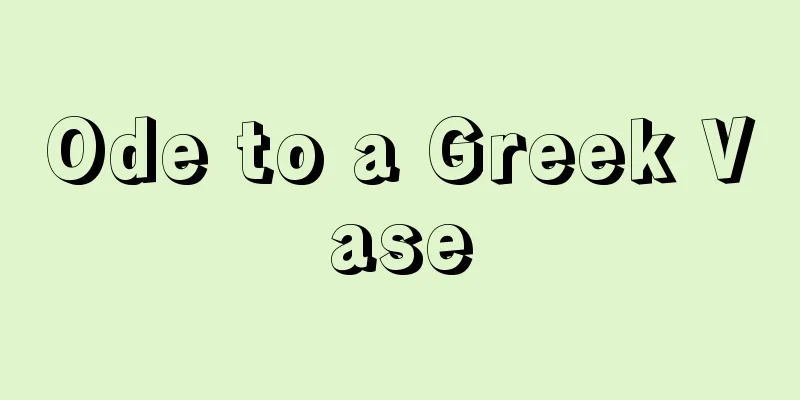Datsuaron - Datsuaron

|
Viewing Europe as "civilized" and Asia as "uncivilized and barbaric," this is an argument that Japan should actively adopt the modern Western civilization without thinking of solidarity with Asian countries, and should choose the same path as the Western powers. "Datsu-A-Ryu-O" has the same meaning. Forced to open its borders under pressure from the Western powers, Japan adopted an active policy of civilization and enlightenment after the Meiji Restoration and advanced on the path to modernization. However, while Japan had a complicated consciousness of both admiration and repulsion toward Western civilization, it also had a complicated consciousness of sympathy and contempt for Asian countries such as China and Korea that were in the same situation as Japan. From this consciousness, the theory of Asian solidarity arose, which said that Japan should work together with China and Korea to deal with the invasion of the Western powers, and the theory of small countryism, which said that Japan should maintain friendship with Asian countries and carve out its own path without following the great powers. However, as the consciousness of Japan as a civilized country grew, which believed that it had succeeded in civilization and enlightenment since the Meiji Restoration, the sense of contempt for Asia, which saw Asian countries as being unable to modernize, also grew stronger. This sentiment intensified especially in the context of the rapid changes in domestic and international situations, such as the expansion of military power after 1882 (Meiji 15), the defeat of the Chinese in the Sino-French War in 1884, the defeat of the Korean enlightenment faction in the Gapsin Coup that same year, and the decline of the Freedom and People's Rights Movement, which led to growing calls for the expansion of national sovereignty. On March 16, 1885, Fukuzawa Yukichi published an editorial in the Jiji Shimpo entitled "Datsu-A Ron" (The Theory of Leaving Asia), arguing that "Japan should not wait for the enlightenment of its neighboring countries before building up Asia together, but rather should leave their ranks behind and join the advancement and retreat of the civilized nations of the West, (omitted) and reject our bad friends in the East of Asia." Since then, the idea of leaving Asia gradually took hold of the national consciousness and came to lead the Japanese people's perception of Asia. [Shozo Matsunaga] Source: Shogakukan Encyclopedia Nipponica About Encyclopedia Nipponica Information | Legend |
|
ヨーロッパを「文明」、アジアを「未開野蛮」とみて、日本はアジア諸国との連帯は考えずに西欧近代文明を積極的に摂取し、西洋列強と同様の道を選択すべきだとする主張。「脱亜入欧」も同じ意味である。欧米列強の圧力下に開国を余儀なくされた日本は、明治維新以降、積極的な文明開化政策を採用し近代化への道を進んだが、欧米文明に対しては賛美、反発の屈折した意識をもつ一方、日本と同じ境遇にあった中国、朝鮮などアジアに対しては、同情、蔑視(べっし)の複雑な意識をもった。こうした意識のなかから、欧米列強の侵略に対し、中国、朝鮮と共同して対処すべきだとするアジア連帯論や、列強に追随せずアジア諸国とは友好を維持して日本独自の道を開くべきだとする小国主義論がおこった。しかし、維新以来の文明開化が成功したとする日本=文明国意識が高まるにつれ、アジア諸国の近代化は期待できないとみるアジア蔑視感も強くなっていった。それはとくに1882年(明治15)以後の軍備拡張、84年の清仏(しんふつ)戦争における清国の敗北、同年の甲申事変による朝鮮開化派の敗退、自由民権運動の衰退という内外情勢の急激な推移とともに国権拡張論が高まる状況のなかで強まっていった。85年3月16日には福沢諭吉(ゆきち)が『時事新報』の社説で「脱亜論」を発表し、「我国は隣国の開明を待て共に亜細亜(アジア)を興すの猶予(ゆうよ)ある可(べか)らず、寧(むし)ろ其伍(そのご)を脱して西洋の文明国と進退を共にし、(略)亜細亜東方の悪友を謝絶する」と論じた。以来、脱亜意識が国民意識をしだいにとらえ、日本人の対アジア認識をリードしていくことになる。 [松永昌三] 出典 小学館 日本大百科全書(ニッポニカ)日本大百科全書(ニッポニカ)について 情報 | 凡例 |
Recommend
Kasukabe Inn
…The Fuji (Tokuten) on Ushijima in the eastern pa...
satanology
...In a broad sense, it is a general term for the...
Loup
… It was once the capital of a Celtic tribe and w...
Banking system
This is a typical example of an online system. Ban...
Fatimid Dynasty - Fāima
A dynasty (909-1171) of the Ismaili sect, a branc...
Modern Thought
A literary and ideological magazine published by ...
Sanma - pacific saury
A colloquial term referring to the close aides inv...
Eri-san - Eri-san
→ Himasan Source : Heibonsha Encyclopedia About My...
Left Wing Theatre
The name of the theater company. It stands for Tok...
Marsilius von Inghen
…The official name of the university was Ruprecht...
Armagne - Armagne
…A region located almost in the center of Europe....
Fusei Tomiyasu
Haiku poet. Born in Aichi Prefecture. Real name K...
Oimihan
A small Fudai domain with its headquarters in Iku...
Cattley, W.
...An orchid plant known as the "Queen of Or...
Kastōr (English spelling)
…the twin brothers, Kastōr and Polydeukēs (Latin:...









